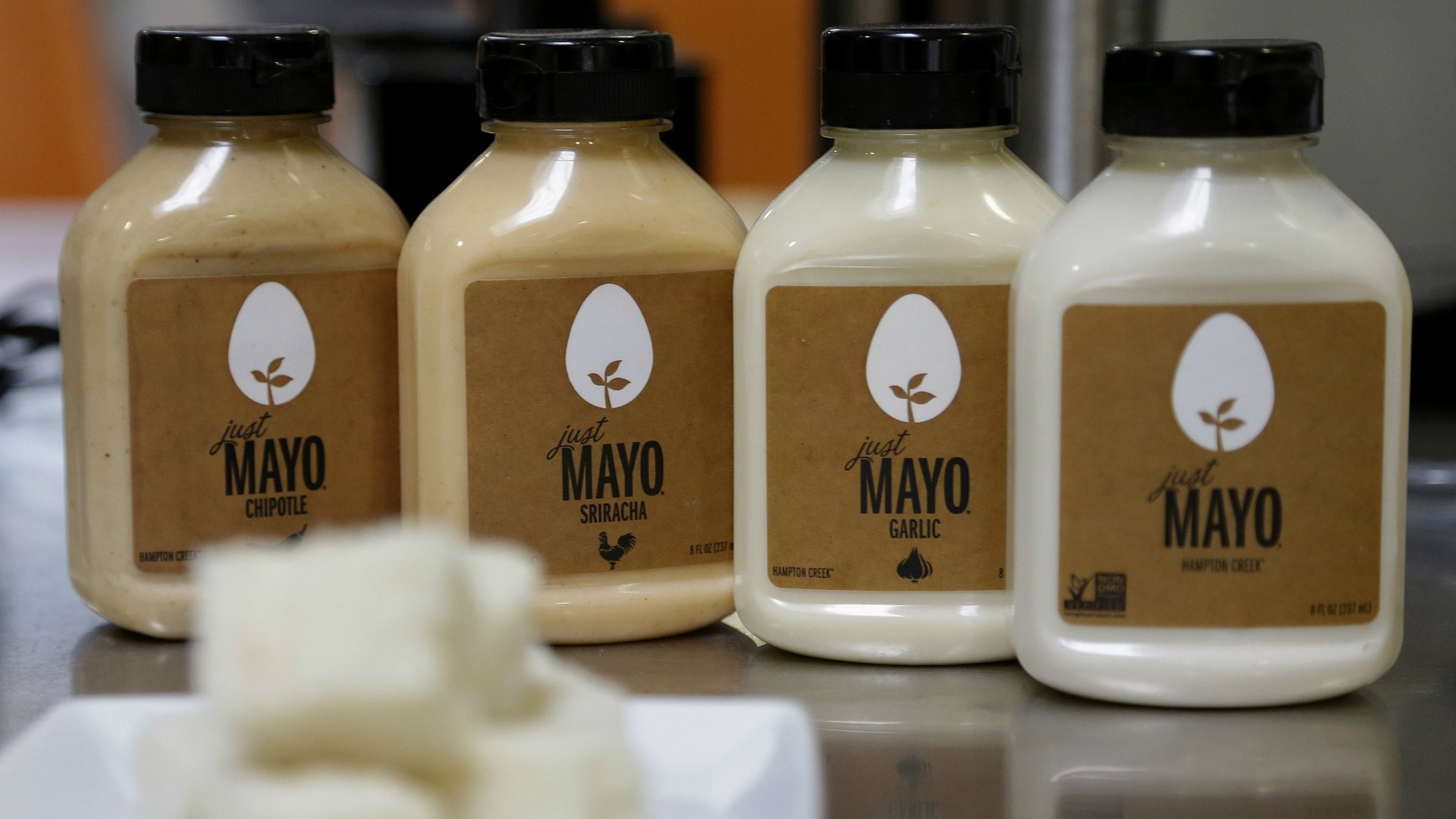A Silicon Valley CEO aims to prove you can crack an entire market without breaking a single egg
It only took five years for vegan mayonnaise to disrupt the condiments aisle, where it can now be found alongside stalwart brands such as Kraft and Hellmann’s. And even as the company behind that disruption looks to continue a shakeup, it’s also launching into new territory, one that’s far more behind the scenes.


It only took five years for vegan mayonnaise to disrupt the condiments aisle, where it can now be found alongside stalwart brands such as Kraft and Hellmann’s. And even as the company behind that disruption looks to continue a shakeup, it’s also launching into new territory, one that’s far more behind the scenes.
Hampton Creek is the Silicon Valley-based food company that in five years rattled the grocery-shelf status quo—an example of how quickly it can happen. Now its CEO, Josh Tetrick, wants to be an essential supplier of ingredients to the most-mammoth food companies on the planet, for use in potentially hundreds of their products.
“We’ve begun the process of establishing relationships with some of the biggest food-manufacturing companies around the world to use in their systems,” Tetrick tells Quartz, emphasizing his desire for the company’s ingredients to become ubiquitous.
He wouldn’t name all the major manufacturers with which he’s hoping to forge partnerships, but did say General Mills was one of them. The multibillion global food company is using Hampton Creek ingredients in some of its baked goods.
Tetrick’s company has proven its mettle in the baked-good category already. It claims to be the first and third most popular cookie doughs in one of three major retailers. It made the claim citing data from IRI, a firm that tracks sales of consumer goods. The company did not name the retail chain.
Such success has been possible because Hampton Creek has managed to creep into major retail outlets.
“People who are shopping at Walmart, who are shopping at Target or at the Dollar Tree—they are buying our products more today than they were yesterday,” Tetrick says.
Of course, despite overall success, Hampton Creek has also experienced its own set of growing pains. In 2015, Tetrick did battle with and won a bitter fight with the US egg industry, which saw the company’s vegan mayonnaise product as a threat to traditional mayonnaise (of which eggs are a primary ingredient). The company was briefly under investigation by the US Securities and Exchange Commission over dubious product buybacks from retailers (that investigation was dropped). And this month Tetrick fired three top executives after an attempted coup.
In addition to those speed bumps, the company is figuring out exactly how it wants to reach consumers, including hammering out a marketing strategy. That sort of change is most clear in a recent redesign of its product packaging and website. A shopper wouldn’t know Hampton Creek is actually Hampton Creek anymore by casually scanning the grocery shelves, or even looking at the company site. All the marketing refers to the company as “just.” The new product packaging has relegated the official name of the company to small print, emphasizing the “just.” on bottles of “Just. Mayo,” and “Just. Ranch,” and “Just. Sweet mustard,” among others.
Tetrick says the company’s changes and direction are to anchor it more closely with its mission, which is not to be a so-called “alternative food.” Certainly forging licensing agreements with the global companies that have products in virtually every supermarket will be a big boon in escaping that association.
“It’s part of a business model that increases the probability that we’re getting more of this stuff on shelves just as quickly as we can,” he says. “It’s not to be the ‘better for you’ option. It is to have the healthier, more sustainable product.”